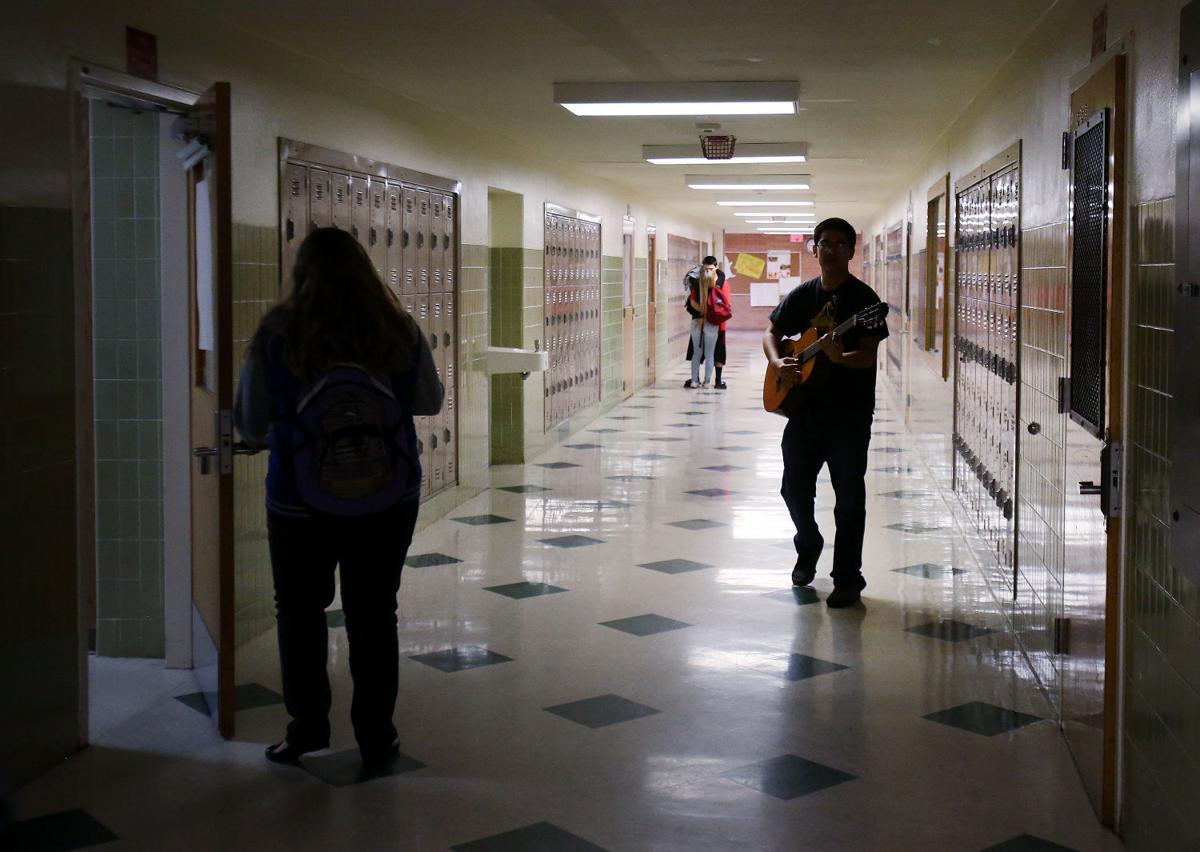The Tucson Unified School District is developing a wish list of campus improvements and repairs, and taxpayers may be asked to foot the bill.
Six scenarios with price tags ranging from $180 million to $300 million will be presented to community members for feedback before the TUSD Governing Board decides whether to call for a November bond election to fund the work.
Depending on the level of funding, repairs could include recoating and select replacement of roofs; replacing poorly functioning heating and cooling systems; security fencing, burglar alarms and secure front entries; fire alarm and public address repairs; replacing old plumbing fixtures; replacing worn hardware and damaged doors; playground equipment and fields; technology power and access; replacing buses; replacing electrical service gear and panels; and track and field repairs.
Proposed improvements focus on enhanced music rooms, science labs and project classrooms for students and enhanced libraries and dining spaces that can also be used by community members. Technology hubs and multi-use outdoor pavilions are also on the list.
“Although the numbers are large, there is a lot behind each one of the decisions and the priorities,” said Mark Bollard of Swaim Associates, an architecture firm hired to work with TUSD on the project. “The goal was not to do a wholesale replacement, but what can we do to make repairs and improvements to bring everything up to a dependable and a serviceable condition that doesn’t consistently require work orders.”
Bollard toured TUSD campuses, which on average are about 46 years old, where he found music programs housed in old vocational rooms with no acoustics, schools with portables prominently on display detracting from the curb appeal, computer labs with laptops clustered around the three or four outlets in the room and a welding program that doesn’t have dependable electrical service.
The wish lists are composed of priorities needed to enhance the educational experience while meeting the needs of students, said TUSD Superintendent H.T. Sanchez.
The funding scenarios were developed following a series of interviews and surveys with TUSD stakeholders including staff, administration, students, parents and governing board members, which showed overwhelming support for the development of a facilities plan and a funding program.
Nearly half of respondents expressed a willingness to support a $100 annual increase — almost what it would cost for the average home if voters approved a $300 million bond.
Asked who would most likely support a bond program, one small group of stakeholders said parents would, followed by teachers and administrators. Retirees were believed to be least supportive, followed by other residents inside TUSD.
That same group was probed for opinions on perceived negatives of a bond program, for which 56 percent said TUSD not doing what is advertised or that money would be mismanaged, which was also expressed in a separate focus group. Another 44 percent identified increased taxes.
Something a possible bond would be unlikely to address is right-sizing campuses so they can operate at optimal efficiency, often achieved by closing schools.
Even though more than one-third of TUSD campuses are operating at less than 75 percent capacity, that issue would become a negative focal point, a focus group advised.






